Earth
Sign up for our newsletter
We summarize the week's scientific breakthroughs every Thursday.
-
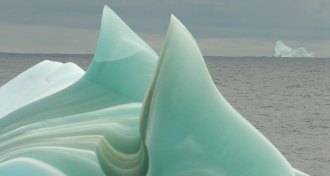 Oceans
OceansTiny bits of iron may explain why some icebergs are green
Scientists originally thought the green hue of some icebergs came from carbon particles. Instead, iron oxides may color the ice.
By Jeremy Rehm -
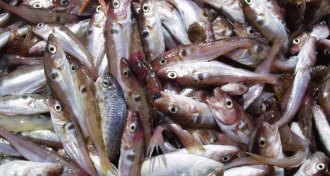 Oceans
OceansOceans that are warming due to climate change yield fewer fish
Warming water due to climate change is diminishing sustainable fishery yields in the world’s oceans.
-
 Life
LifeReaders ponder mitochondria, Neandertal diets, deep sea corals and more
Readers had questions about mitochondrial DNA, Neandertal diets, deep ocean corals and more.
-
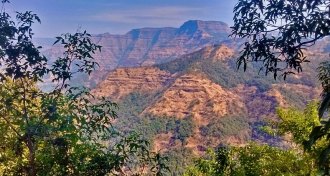 Climate
ClimateDueling dates for a huge eruption reignite the debate over dinosaurs’ death
New dating techniques for the Deccan Traps volcanic eruptions disagree on whether they were the main culprit in the dinosaurs’ demise.
-
 Chemistry
ChemistryWhy kids may be at risk from vinyl floors and fire-resistant couches
Children from homes with all vinyl floors and flame-retardant sofas show higher levels of some synthetic chemicals in their bodies than other kids.
-
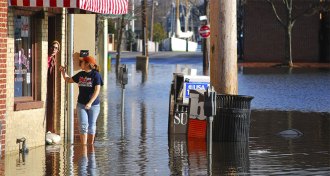 Climate
ClimateTidal floods driven by climate change may hurt small businesses
Parking data from Annapolis, Md.’s historic downtown shows how tidal flooding, driven by sea rise, can hurt local business.
By Sujata Gupta -
 Earth
EarthMuons reveal the whopping voltages inside a thunderstorm
Particle physics sheds new light on the electric potential of thunderstorms.
-
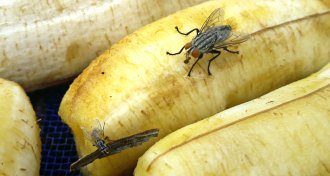 Climate
ClimateClimate change could increase foodborne illness by energizing flies
Warmer, more lively house flies could spread more Campylobacter bacteria by landing on more food.
By Susan Milius -
 Animals
Animals50 years ago, DDT pushed peregrine falcons to the edge of extinction
In 1969, peregrine falcons were at risk of extinction. But a ban on the pesticide DDT and new captive breeding programs allowed the raptors to recover.
-
 Tech
TechA new 2-D material uses light to quickly and safely purify water
A newly designed material uses only light to speedily remove 99.9999 percent of microbes from water.
By Jeremy Rehm -
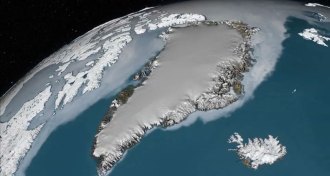 Earth
EarthGreenland may have another massive crater hiding under its ice
There may be yet another large crater buried beneath Greenland’s ice sheet. But it’s probably not related to the first one found last year.
-
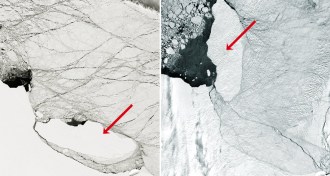 Climate
ClimateAn Antarctic expedition will search for what lived under the Larsen C ice shelf
The fourth attempt to investigate the seafloor once hidden by the Larsen C iceberg may have the best chance yet of success.